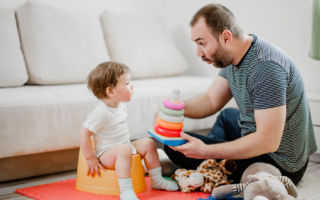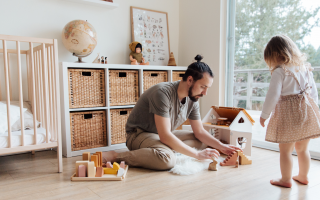Discipline can be taught. The parent has to understand what the child is trying to do, what the child perceives to be wrong, and how best to handle the situation. A parent should try to avoid punishment or punitive measures. Instead, let the child know he is doing something wrong and explain why. The best way to reinforce discipline is to practice it. If he observes the parent taking charge, the child will be more likely to take charge and do the same.
Here are Tips to Deal with Your Child’s Discipline Problems:
Give Your Child an Allowance.
We love to encourage children to earn their keep. In today’s money-conscious environment, giving them an allowance is one of the best ways to teach them the value of money. There are many ways a child can earn money. It does not have to be an allowance. But it’s a great way to start teaching children the value of money. They need to learn how to manage their money, from spending to saving.
Give Your Child Choices.
It sounds very passive-aggressive and boring, but active-aggressive parents should realize that children live to be challenged and challenged to live. Giving your child choices empowers them to make decisions on their own. A toddler may choose not to wear his snowsuit for a few minutes, but he may feel frustrated and unable to control his emotions when forced to wear his snowsuit. This frustration easily crosses over into bad behaviour. Instead, when your child is not being respectful, you can address the issue by allowing them to choose how they would like to respond. For example, you can give them a choice between putting on a snowsuit or wearing their pyjamas. If your child feels like they have a choice, they may be more willing to participate in the activity.
If You Make a Mistake, Admit It.
Your child’s discipline problems can be resolved through learning. By showing your child that you are honest, you will earn the child’s trust and have more chances to correct your mistakes. If you punish a child for making a mistake, you are teaching them that mistakes are bad. If you make a mistake, admit it and apologize. If you make a mistake, admit it. Some parents have the attitude that their children are spoiled and undisciplined because they didn’t learn to be perfect right away. Parents should not expect too much from their children. Be fair, but set boundaries. Mistakes happen, but blaming others is never an answer to fixing the problem. Always be honest with yourself, seek counsel from an expert or from a trusted family member, and be willing to admit your mistakes.
Keep Eye Contact.
Discipline is essential in parenting. If you lose eye contact, your child can act out. Maintain eye contact with your children to make their behaviour better. It is the foremost way to build your child’s self-esteem. When a child is disciplined, the perpetrator should maintain eye contact. When a child is rewarded, the perpetrator should maintain eye contact. When the kid is corrected, the perpetrator should maintain eye contact. When disciplining your child, make sure to keep eye contact to avoid anger. Do not ignore your child’s misbehaviour, and if your child is misbehaving in front of others, explain to your child why his behaviour is unacceptable. It’s fundamental in discipline and beneficial to the adult and the child to use eye contact. Parents should maintain eye contact with their children and let them know that they will see their children the next day. Keep eye contact with your child. This will help make their discipline more effective. It may help your child to understand that you mean your words—that you are devoted to helping them with their behaviour. It will also encourage them to respond appropriately.
Teach Your Child Accountability.
A child is born with many natural emotions. If he is disciplined and taught discipline at a young age, he will learn proper behaviour. Parent should teach their child accountability. He should realize his mistakes. They will learn from their mistakes and do better next time. Children can take responsibility, be accountable, and hold themselves accountable for their conduct. They learn these lessons early on from their parents. When children make mistakes and feel that their actions have consequences, they are more likely to learn from their mistakes. When they show responsibility and accountability and hold themselves accountable for their actions, they feel a sense of satisfaction, pride, and accomplishment.
A child’s behaviour problems can be related to changes in their environment, parents’ behaviour, or problems at home. It is recommended that parents consult with child psychologists and psychoanalysts or with teachers or paediatricians evaluating the child.




